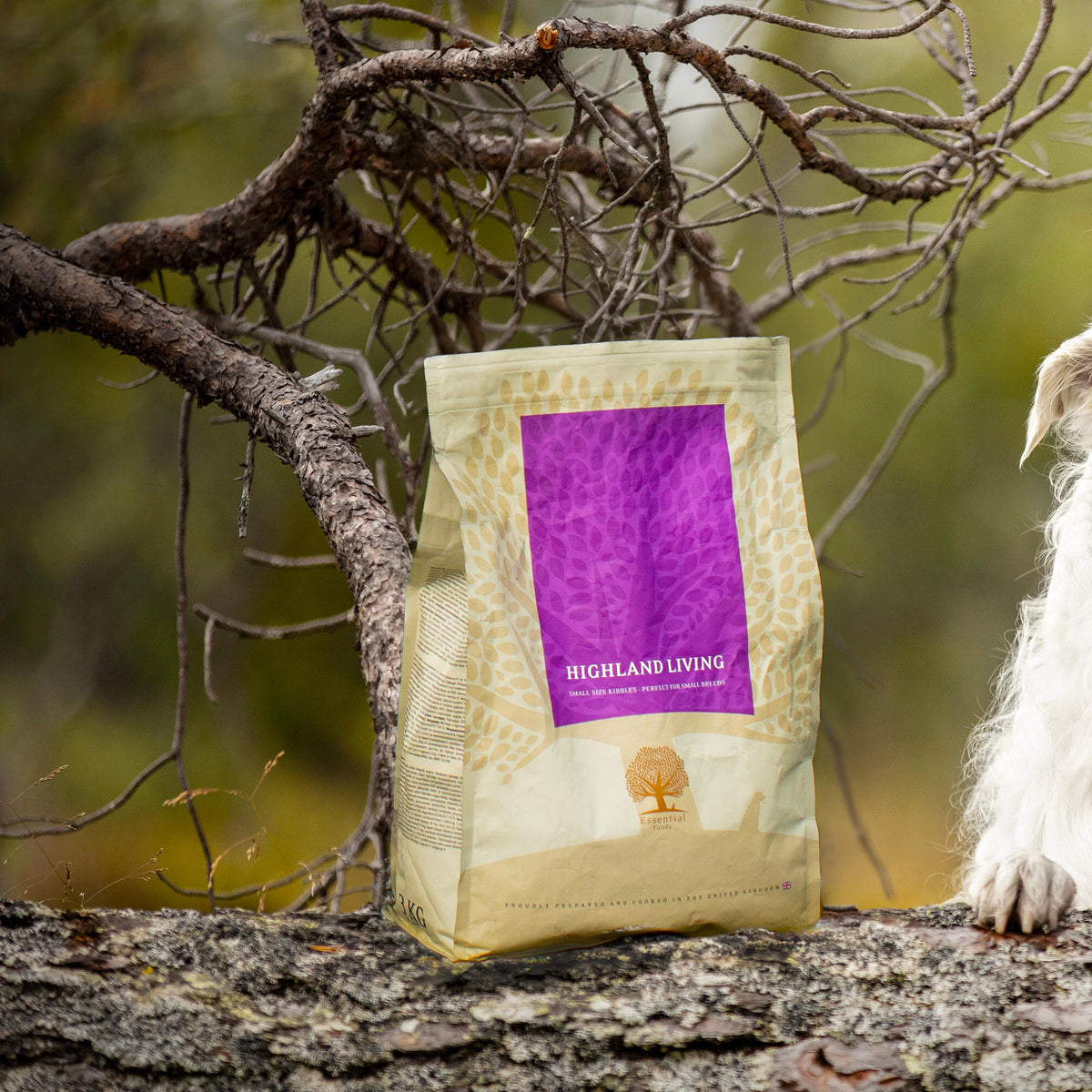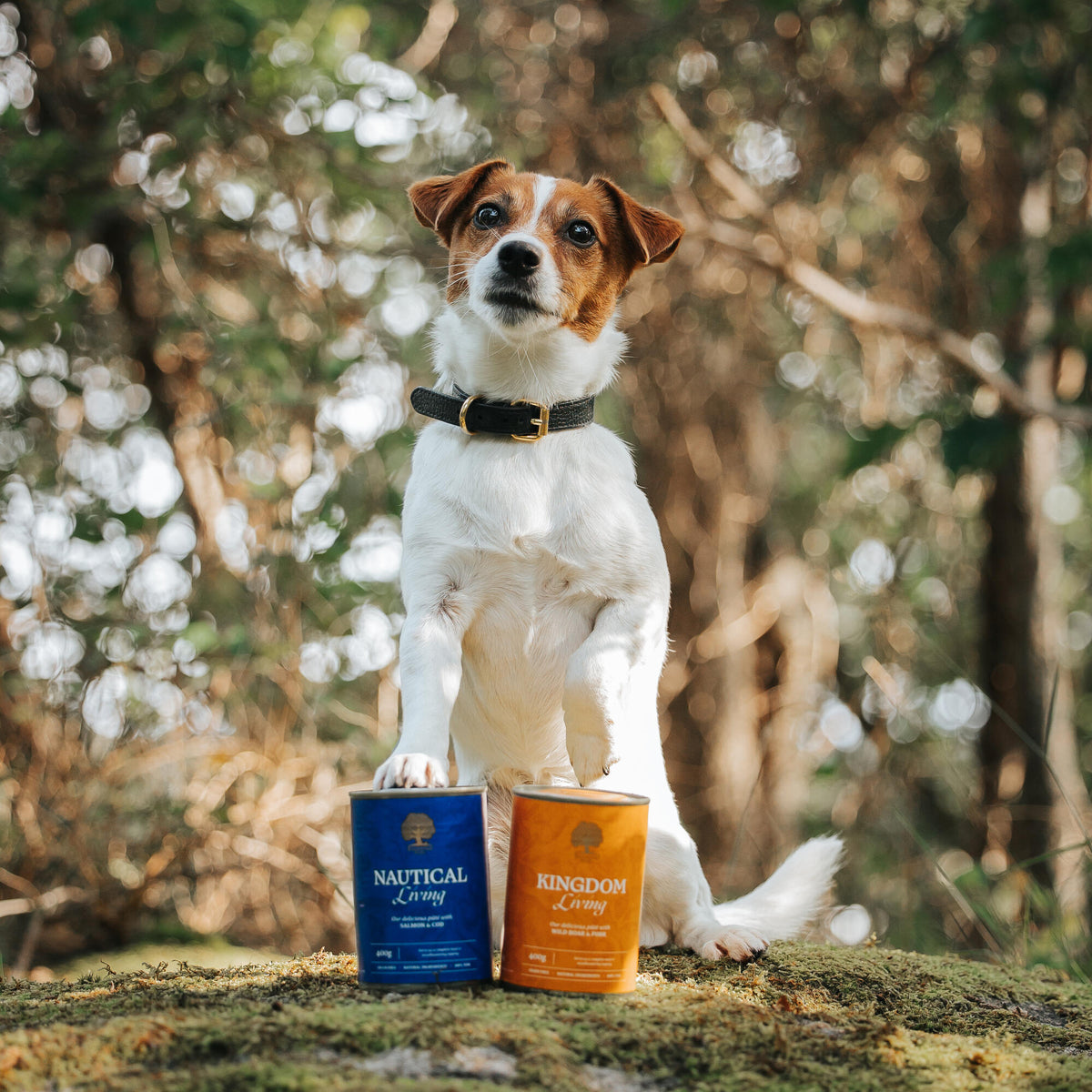Your Cart is Empty

Have you ever wondered how long it takes for your dog to digest their food? Understanding the digestion process in dogs can provide valuable insights into their dietary needs and overall health. In this comprehensive guide, we'll explore the factors that influence digestion time in dogs and discuss the benefits of feeding them high-quality options like puppy food, natural dog food, and grain-free dog food. Plus, we'll delve into why Essential Dog Food stands out as the best choice for your dogs nutritional needs.
The time it takes for a dog to digest food can vary based on several factors, including:
Smaller breeds tend to have faster metabolism rates and may digest food more quickly than larger breeds.
Puppies typically have faster digestion rates compared to adult dogs due to their higher energy requirements for growth and development.
The type of food your dog consumes can significantly impact digestion time. Foods with higher fat and protein content may take longer to digest than those with lower fat and protein levels.
Underlying health conditions such as gastrointestinal issues or infections can affect digestion time in dogs.
The digestion process in dogs begins in the mouth, where saliva helps break down food into smaller particles. From there, the food travels down the esophagus and into the stomach, where it undergoes further breakdown by stomach acid and enzymes. Next, the partially digested food moves into the small intestine, where nutrient absorption occurs. Finally, any remaining waste travels through the large intestine and is excreted as feces.
On average, it takes dogs anywhere from 8 to 10 hours to digest their food fully. However, this timeline can vary depending on the factors mentioned earlier. For example, smaller breeds may digest food more quickly, while larger breeds may take longer. Additionally, the type and quality of food can influence digestion time, with high-quality options like puppy food, natural dog food, and grain-free dog food typically taking longer to digest due to their nutrient-dense nature.
When it comes to providing your dog with the best nutrition possible, Essential Dog Food stands out as a top choice. Here's why:
Essential Dog Food offers grain-free options, ideal for dogs with dietary sensitivities or allergies to grains.
Their formulations boast high levels of protein, essential for muscle development, energy, and overall health.
Essential Dog Food follows the BOF (Behavioural Optimising Foods) principle, ensuring each meal is carefully crafted to meet dogs' nutritional needs and stabilize blood sugar levels.
With a focus on real meat as the main ingredient, Essential Dog Food provides dogs with the quality protein they need for optimal health and vitality.
Dogs love the taste of Essential Dog Food, making mealtime enjoyable and ensuring they receive the nutrients they need to thrive.
In conclusion, understanding how long it takes for a dog to digest food is essential for ensuring their nutritional needs are met. Factors such as size, breed, age, diet, and health status can all influence digestion time. By choosing high-quality options like Essential Dog Food, you can provide your furry companion with the nutrients they need for a healthy and happy life.
FAQsSigns of digestive issues in dogs may include vomiting, diarrhea, constipation, excessive gas, bloating, and changes in appetite or stool consistency. If you notice any of these symptoms, it's essential to consult with a veterinarian for proper diagnosis and treatment.
Both wet and dry dog food can be suitable options for your dog, depending on their individual preferences and dietary needs. Wet food may be easier to digest for some dogs, while others may prefer the crunchiness of dry food. It's essential to choose high-quality options that meet your dog's nutritional requirements. A mixture of both is always a good option to keep your dog interested.
The frequency of feeding depends on your dog's age, size, breed, activity level, and health status. Puppies typically require more frequent meals, while adult dogs may do well with one to two meals per day. .
Yes, stress can impact your dog's digestion and overall health. Dogs may experience digestive issues such as diarrhea or vomiting during times of stress, such as moving to a new home, the arrival of a new pet, or changes in routine. Providing a calm and stable environment, regular exercise, and positive reinforcement can help alleviate stress and promote better digestion for your dog.


